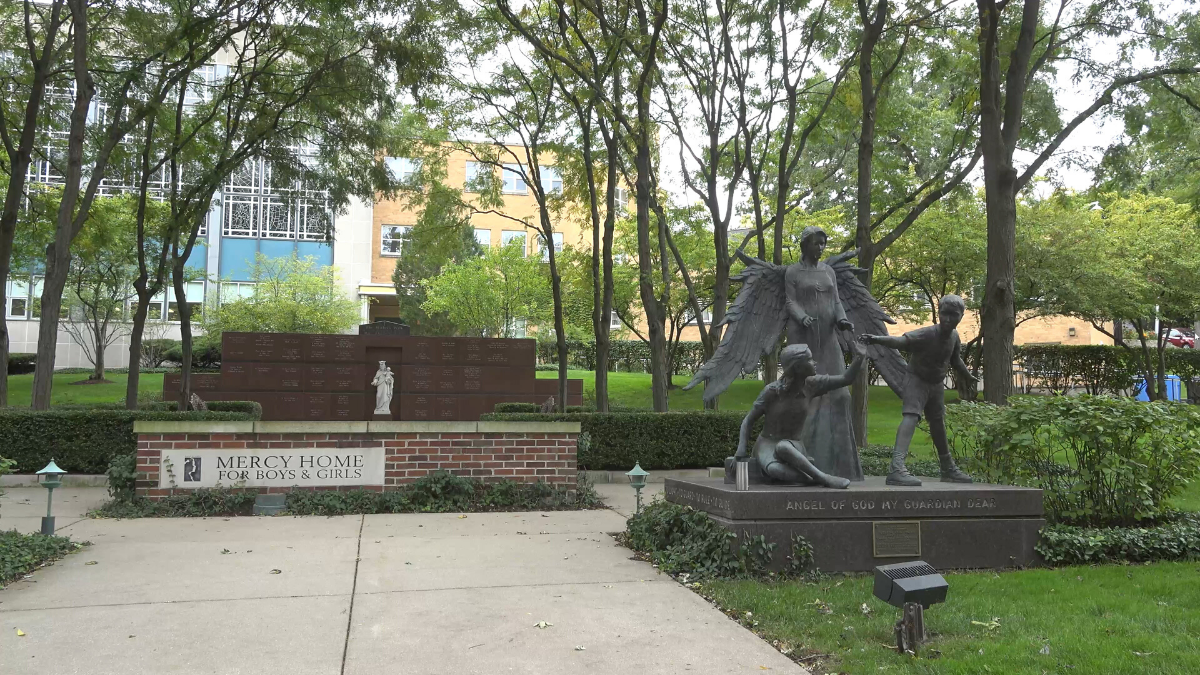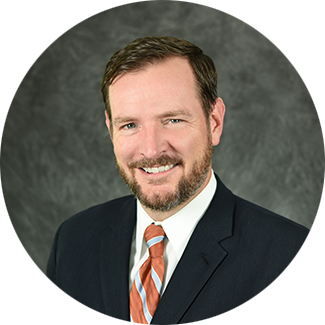Recently, Therese McCall, a master’s degree candidate studying pastoral ministry at Loyola and the University of St. Mary of the Lake, interviewed Mercy Home President Fr. Scott Donahue and two members of his leadership team to learn more about Home’s mission and social justice priorities. The resulting class paper encapsulated the ways that our coworkers support our young people and one another. The organizational culture that results from the dedication of all involved at every level makes Mercy Home an exceptional place to work.
McCall said it was immediately evident from her discussions that our leadership and coworkers are motivated in justice work by their own life experiences, observing that “they are people for whom their work and dedication to building a more just world is not a job, but a deep commitment and way of life.”
While initially approaching the Home with the understanding that education was central to its mission, she learned about the depth of care that our coworkers provide to the young people who turn to us for help.
“In addition to foundational educational support,” McCall wrote, “Mercy Home offers children in crisis, and their families, a broad and comprehensive array of life-changing care and support services, in the security of a nurturing residential environment.” Because resources are provided for children as young as 9 and young adults into their twenties, our help is critical “not just through the high school years, but also during college and in the early years of entering the workforce.”
Exploring further, McCall learned how the Home’s therapeutic and workplace culture supports coworkers in their justice work, ultimately to the benefit of the young people and families in our care. In her paper, McCall broke down the aspects of the Home’s culture and support into three main components—the young person’s motivation, the academic and therapeutic support we provide, and the community that we foster within our workplace.
Firstly, she observed, “Residents are empowered to make an active and personal decision to come to the Home.” That initial motivation is channeled into goal setting and self-empowerment throughout their involvement with the Home. “In making their decision to join,” she wrote, “the children understand that the time, effort, and hard work required in their therapy is a critical aspect of their healing and success at Mercy Home. For younger children the goal is for them to ultimately return home, while for older children the goal is to support a successful transition to college or to the work force.”
Secondly, she explained, young people are offered an array of academic and enrichment opportunities that help them overcome significant academic and employment gaps—deficits that in many cases were made worse by the pandemic. These opportunities include individual school placement, one-on-one tutoring, supplemental coursework, and executive functioning training.
But the glue in all of these is the Home’s intentionality around building trusting relationships with staff and volunteers.
Fr. Scott’s experience has taught him that it is in establishing trusting relationships that miracles happen in the lives of the young people.
– McCall wrote
Whether it’s success in school, building a resume, or healing from traumatic experiences, this portion of McCall’s paper expounded on numerous facets of our care model and the depth of services that we provide young people once they have made that critical commitment to change their lives. And it’s these services, delivered around the clock, every day of the year, that lie at the heart of our success at advancing justice for young people.
While McCall knew before her meeting that Mercy Home was a venerable institution that has served Chicago for nearly 136 years, her meeting revealed to her how adaptable we have been in addressing the challenges youth have faced during any era. She said that the Home’s leaders “prioritize constant evolution of their care model by staying current with new research and [is] supported through partnership with local centers of excellence such as the Rush University Neurobehavioral Center and experts at the University of Chicago.”
An example Fr. Scott offered is how we removed a token reward system in residential programs once it became evident that it contributed to inequitable power among the youth, which ran “counter to the culture and mission of the Home.” She also cited our implementation in recent years of the ARC (Attachment, Self-Regulation, and Competency) framework and how we provide training in these practices for all coworkers in the Home.
McCall’s paper then examined our vision to break the school-to-prison pipeline. “Failure in the classroom is closely correlated with incarceration of young people,” she wrote. “Therefore, supplemental support of the children is critical. Intensive tutoring and academic support within and outside of the classroom is prioritized.”
Our trauma-informed therapeutic approach also works to help youth manage life’s inevitable stressors appropriately by developing skills in anger management, and self-expression. “The youth are also taught skills in self-reflection, which leads to greater emotional control following periods of detention,” McCall wrote.
Mastering these areas supports lifelong success, giving the children tools that impact [them] well beyond their early years of education.
– McCall wrote
The Home’s coworkers, McCall learned, play a critical intermediary role with each young person’s school. “The children are assigned advocates who meet and connect with school faculty and teachers,” she wrote. “Serving as a true and experienced champion for the individual, they model what a productive and healthy support system looks like for the child and family members, who sometimes participate in the school discussions. Through development of just and actionable remediation plans and other like-giving solutions, the learning and development paradigm for the child is secured and the children flourish.” As evidence of that success, the Home consistently achieves a 100% for our seniors and 95% of all youth advance to the next grade in school each year.
Justice work doesn’t end with graduation from high school, McCall noted. “As first-generation college students, they often face meaningful barriers to college enrollment. For example, help might be needed in navigating the absence of parental W2 forms when completing financial aid applications, or provision of funds might be required to pay course registration fees.” Further, we provide comprehensive resume and interview skills training while connecting young adults with professional internships.
Less tangible, perhaps, but just as critical, “A continued sense of community is fostered by keeping close to the college students through regular group meetings,” McCall wrote. “This provides opportunities to share college challenges and experiences.”
The third and final primary component of our social justice work, McCall explained, involves the workplace culture itself, including “the priority placed on creating an environment of inclusion and a shared sense of purpose and mission for the staff and volunteers.” She saw how proud Fr. Scott is that Mercy Home has been listed among Chicago’s Top Workplaces by the Chicago Tribune for the past 11 years. “He attributes this recognition in part to everyone understanding how their role relates to the mission, which directly contributes to the successful outcome for the children and youth,” McCall wrote.
McCall enumerated several ways that alignment to mission is accomplished, including regular “state of the mission” conversations, open communications, and “fostering opportunities to listen, to respond and to evolve.”
“Additionally,” McCall noted, “meals are shared between co-workers and the children, fostering trust and community. Celebration of their diversity is reflected in the cross-cultural foods they prepare, ecumenical sharing of religious holidays, and creation and sharing of art and other cultural stories.”
But the way that our internal culture prioritizes self-care, cooperation, and taking care of one another may be the key in how effectively our coworkers support our young people:
“Impacted by this sense of community, it is not unusual for all to respond in support when team members are experiencing financial or medical challenges. Justice sought for the residents distills through the entire community where no one is left behind and all are there for the other. Personal failures for both staff and residents are handled in the spirit of the Gospel where forgiveness and second chances are the norm. Self-care in their human frailty is also fostered through a culture that highlights the importance of continual spiritual nurturing for all, a priority supported through a dedicated Department of Spiritual Development at the Home.
McCall concluded that the important justice work taking place at Mercy Home is “anchored in a deep appreciation of and a lived experience of seeing the potential in all human beings.” And that appreciation starts with leadership. “Fr. Scott encourages the Mercy Home team, and all of us, to remember that through living the Gospel message, justice emerges. We are all brothers and sisters, called to inclusivity, to love, and to action for and with each other.”
We agree that our model is worth studying, and that our workplace culture is worthy of further exploration by interested job seekers—particularly those who want to work directly with young people and make a meaningful difference in their lives. And we are grateful to Therese McCall for her time and interest in knowing more about how the Home advances social justice.



